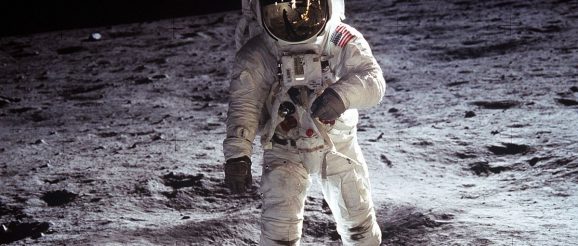These are Houston’s top space innovation stories of the year


Editor’s note: As 2021 comes to a close, InnovationMap is looking back at the year’s top stories in Houston innovation. When it came to the space innovation and technology — from commercial space exploration to space tech and research funding — in Houston, five stories trended among readers.
Overheard: Experts share how Houston can lead commercial space exploration

Is the Space City poised to continue its reign as an innovative hub for space exploration? All signs point to yes, according to a group of experts.
The Greater Houston Partnership hosted its annual State of Space this week. The virtual event featured a keynote address from Vanessa Wyche, director of NASA Johnson Space Center, and a panel moderated by David Alexander, chair of aerospace and aviation committee at the GHP and the director of the Rice Space Institute.
The conversations focused on the space innovation activity happening in Houston, as well as an update on the industry as a whole has space commercialization continues to develop. All the speakers addressed how Houston has what it takes to remain a hub for the sector.
“The future looks very bright for Houston that we will remain a leader in Houston spaceflight,” Wyche says in her address. Click here to read the full article.
Houston, we’re trying to fix the problem: Aerospace challenges and future exploration

If there is anything that goes hand in hand so perfectly, it’s Houston and Space. Houston is home to the Johnson Space Center, named after former president Lyndon B. Johnson, and is home to revolutionary space research projects and spaceflight training for both crew members and flight controllers. While it’s every kid’s dream to become an astronaut, have you ever wondered why rocket science is actually so difficult?
Though the space race of the ’70s has been over for some time, the new space race — the race to Mars and the commercialization of space tourism — has just started. Elon Musk, Jeff Bezos, and Richard Branson are spearheading the “Billionaire space race.” But even with their billions being put into developing spaceports, NASA rocket partnerships, and planning future Mars missions, rocket science is just as difficult to implement as it was the first time around.
So why, even with billions of dollars at their disposal and many companies pushing for more funding, are scientists and engineers still struggling to make rocket travel an everyday thing? Here are some of the countless reasons why rockets science is insanely difficult, no matter how much money you throw at it. Click here to read the full article.
Fresh funds: 2 Houston organizations dole grants to advance research

Funding fuels the research that supports the innovations of tomorrow. Two Houston-based scientific organizations announced funding recipients that are working on advancing research in space health and chemistry.
The Translational Research Institute for Space Health, known as TRISH, at Baylor College of Medicine has announced almost $4 million in grants to four research teams. As more and more plans to launch humans into space continue to develop, TRISH is working to support research addressing human health in space. Click here to read the full article.
Space-focused fund with HQ in Houston rockets toward $20M goal

A venture capital firm co-located in Houston and Austin has announced a recent closing of a $20 million fund.
SpaceFund has raised $9 million toward its its $20 million BlastOff Fund as of this week — surpassing its initial first close goal of $5 million.
“We are thrilled to see how many investors are placing their trust in our team,” says SpaceFund founder Rick Tumlinson in a news release. “We spent a lot of time slowly and carefully developing our processes and credibility, so we can better serve both investors and the amazing space startup community, and it’s paying off.”
Launched in 2019 with an initial fund that closed in August of 2020, SpaceFund has already invested in 13 exciting space startups. The new fund will build on those investments while also expanding its portfolio, according to the release.
“SpaceFund is about combining a bold approach with a very conservative diligence and investment process,” says Meagan Crawford, SpaceFund’s managing partner, in the release. “The BlastOff Fund continues our careful growth plan but is designed to accelerate our ability to place investment into those companies that are leading the Space Revolution.” Click here to read the full article.
New Houston accelerator supporting BIPOC in aerospace announces inaugural cohort

A new accelerator program that is focused on aerospace innovation and supporting entrepreneurs who are Black, Indigenous, and people of color has announced its first cohort.
The Ion‘s Aerospace Innovation Accelerator for Minority Business Enterprises, or AIA for MBEs, has named the four companies that well be a part of its inaugural cohort. The 12-week program will guide the entrepreneurs through the development of their innovations, the growth of their businesses, and the development of relationships with mentors, corporate partners, and stakeholder networks.
“Aerospace contains a myriad of dimensions and by demystifying the industry in the form of the AIA for MBEs, we are able to build a more inclusive innovation ecosystem,” says Christine Galib, senior director of programs at The Ion, in a news release. “It’s our goal to not only support participants to be successful, but to open the playing field for other minority business enterprises hoping to enter the space.” Click here to read the full article.
